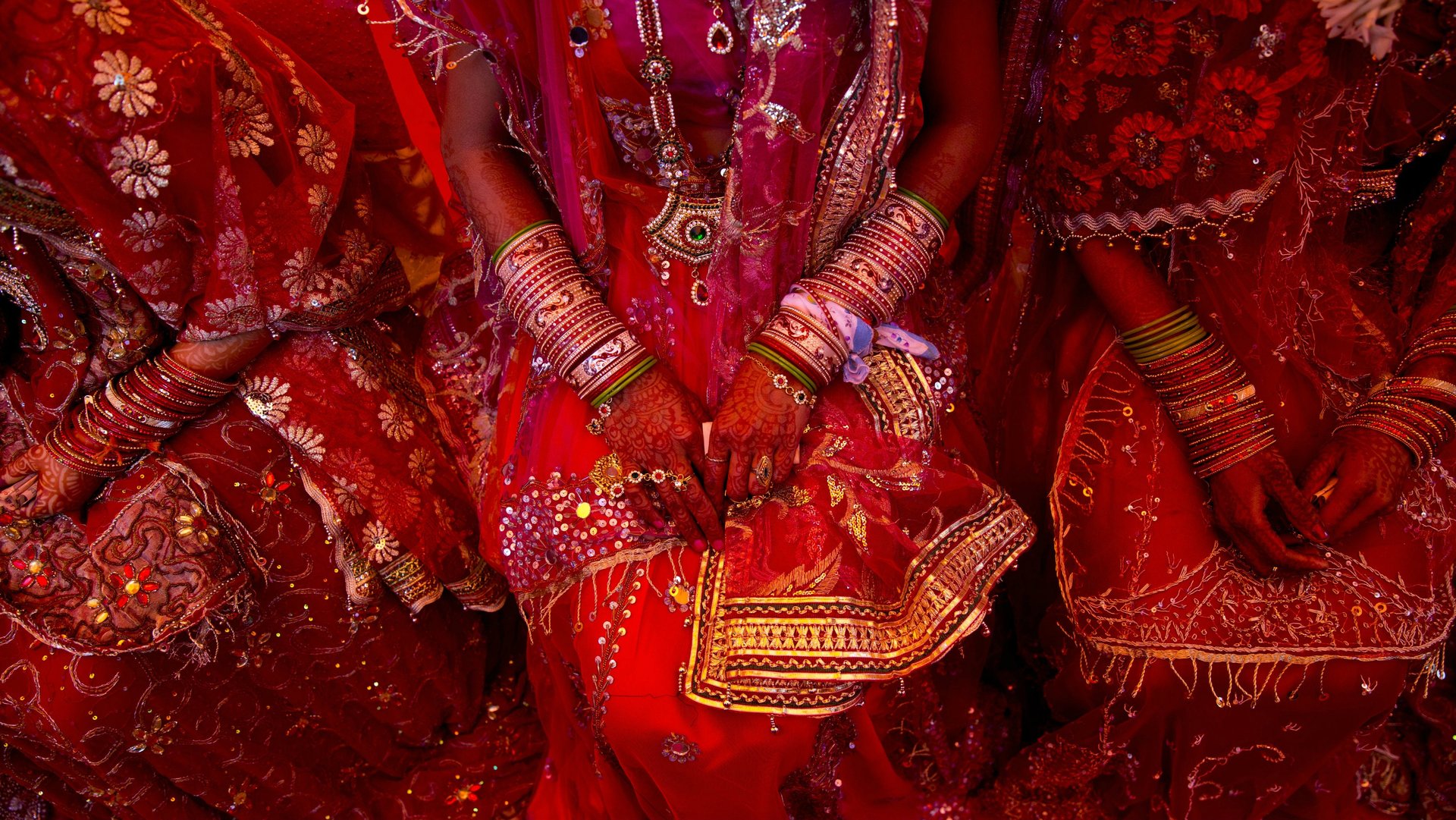The bride’s ready, but her father’s in queue—demonetisation spoils India’s wedding plan
Moitreyee Banerjee, a New Delhi-based lawyer, is one angry bride-to-be.


Moitreyee Banerjee, a New Delhi-based lawyer, is one angry bride-to-be.
Last week, her 67-year-old father stood for hours in a queue at an Indian Overseas Bank branch to withdraw money to pay vendors for her wedding. However, he was turned away for not having enough documentation.
“It is frustrating and an eyewash because we cannot access our own money,” said Banerjee, 29, whose Dec. 09 wedding in Delhi might even be rescheduled if it remains tough to get cash.
The Narendra Modi government’s move to scrap old Rs500 and Rs1,000 notes has created havoc in India’s Rs100,000-crore wedding market. It’s all been about cancelled events, fewer and smaller gifts, and deferred payments over the last two weeks, just when the season was beginning to gather steam.
And while the government has relaxed norms for cash withdrawals of up to Rs2.5 lakh ($3651) for those who have weddings planned in the family, the revised rules issued earlier this week have been of little help. For instance, to withdraw a large sum of money, individuals must prove that they are paying vendors who have no bank accounts and also submit detailed information on the purpose of payments.
Urban Indian households, on average, spend $75,000 on weddings, which is far more than their Chinese and American counterparts, according to estimates by Goldman Sachs. But that could decline in the coming months, thanks to demonetisation.
Quartz spoke to photographers, event planners, and decorators—all inseparable parts of the wedding industry—to assess the impact on the big fat Indian wedding.
Cost-cutting
In Bengaluru, Vikram Priyadarshi and his family are doing everything they can to manage funds for his January wedding.
“We have had to change our plan and re-think expenses completely,” said Priyadarshi, who is getting married in Meerut. “We are all swiping our cards and even postponing shopping.”
They aren’t alone. Across Indian metropolises, cash-strapped citizens are finding ways to cut costs, slashing spending on entertainment and dance, and expensive venues. Some people are even knocking off entire ceremonies from the agenda, informing their guests of the cancellations via text messages.
“Some 60-70% of couples, typically NRIs, are still going ahead with their plans, but others are slashing events and cutting costs,” Arjun Kartha, a Gurgaon-based photographer, said. “Entertainment is the first big casualty.”
Ashish Boobna, director at FNP Weddings & Events, agrees. The two weeks following the government’s ban have been marked by several cancellations for his company, which provides decoration services, he said. A number of January and February weddings have even been postponed to March and April.
“This is the slowest that business has moved in a decade,” Boobna said. “The big fat weddings are certainly missing from the scene now.”
The jewellery and bridal wear markets, too, are hurting.
“It doesn’t feel like November,” said Toshik Anand, who runs a jewellery store in South Delhi and sees most wedding-related sales in the months between October and February. Weddings account for 50% of the annual gold purchases made in India, according to data by the World Gold Council. Anand notes, though, that fewer people have been buying gold in the last week.
While demand had jumped sharply immediately after demonetisation on Nov. 08, as people rushed to buy gold at higher prices to use up their old notes, it has since declined. That’s in part because the government has since tightened regulations over such transactions.
Shopkeepers and traders interviewed by Quartz last week in Delhi’s Chandni Chowk market, famous for bridal wear, complained of a slump in business of between 50% and 80%.
“There are no customers,” said Karan Goel, owner of TekChand Arjit Goel, a store selling women’s ethnic wear.
Ironically, while most Indians are reining in expenses, mining baron and former Bharatiya Janata Party minister G Janardhan Reddy in the southern Indian state of Karnataka spent an estimated Rs500 crore on his daughter’s nuptials in Bengaluru a few days ago. The ostentatious display of wealth attracted scrutiny from the income tax department.
Bannerjee, the Delhi lawyer, had no such mega plans. But she didn’t expect such a rut either. “You shouldn’t have to be in such a state of distress and desperation for your own wedding, that too for your own money,” the exasperated bride-to-be said.